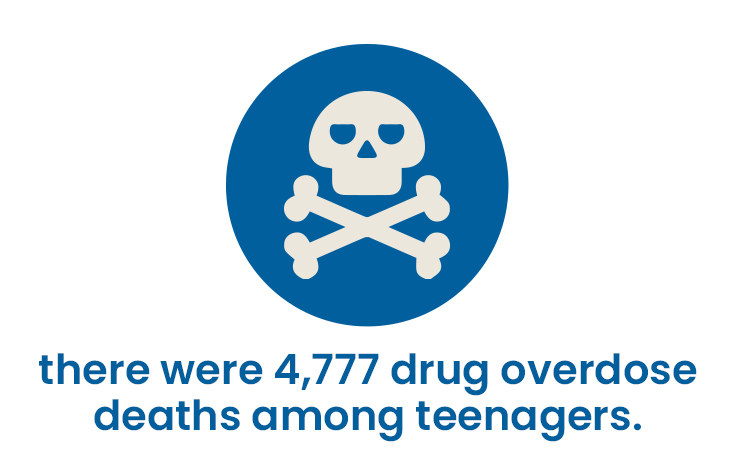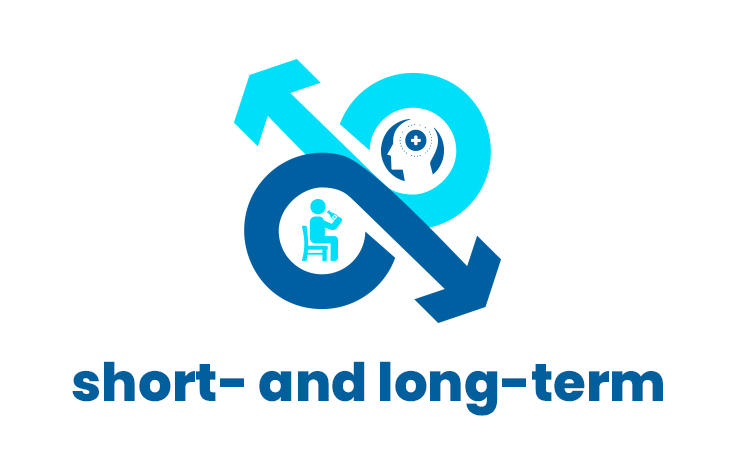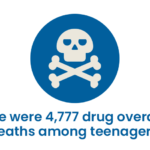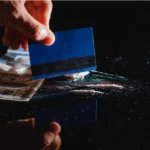I’m Dr. Ignatov. I’m a psychiatrist and addiction medicine physician diagnosed, and a substance use disorder can be a complex and challenging process. My patients often don’t know if treatment is right for that, but a diagnosis from a doctor or qualified mental health professional can really help. In this video, I’ll explain the usual steps for getting an accurate diagnosis to serve your recovery. The first step in the diagnostic process is screening and assessment. This involves gathering information about your history, including the type of substances you might use, the frequency of use, and how long this has been going on. As a doctor, I also ask about my patient’s family history and co current mental health conditions, yours or theirs. This information can be. Critical for treating your mind and body. It tells us where to look for root causes of your condition. We also assess patients for physical symptoms of substance abuse, such as changes in appetite or sleep patterns, as well as withdrawal symptoms and signs of intoxication. Once the assessment process is complete, I’ll then determine whether the patient meets the diagnostic criteria for substance use disorder. These are outlined in the Diagnostic and Statistical Manual of Mental Disorders known as DSM five, which is the standard reference used by mental health professionals for diagnosing mental health conditions and substance use. The DSM five looks for real impairment or distress in life, as well as the. Presence over at least two of the fallen within a 12 months period, such as tolerance. Do you need increasing amounts of the substance to achieve the desired effect withdrawal? Do you feel you need. The substance to avoid painful symptoms control do you use in large amounts or for more time than you mean to cravings? Have you had unsuccessful attempts to cut down or control drug or alcohol use bias? Have you given up on social work or other obligations? Do you use drugs or alcohol harm? Do you continue to use or drink despite physical or psychological problems? If the patient says, Yes to two or more of these questions. The doctor will then determine the severity of the disorder based on the number of symptoms present. The severity can range from mild showing one, two, or three symptoms to severe with six or more symptoms. It is also common for individuals with substance use disorders to also have. Other mental health conditions such as depression, anxiety, borderline personality disorder, or bipolar disorder, this can complicate the diagnosis and is known as a co current diagnosis. Treatment of the substance use then often requires additional treatment, but once the diagnosis is made, a personal treatment plan can be developed. Personalized treatment may involve a combination of medications, behavioral therapies, and support groups, but it all begins with accurate and careful diagnosis. Please understand that getting a substance use disorder diagnosis from a doctor can be a sensitive and deeply personal process. Many people with substance use disorders may feel ashamed or embarrassed about their condition and may be hesitant to seek help. We all need to create a safe and non-judgmental place for people to discuss their substance use so that we have the open, honest information to offer the best, most effective treatments overall. A diagnosis from a doctor is a vital starting step in the process of getting and feeling better after active addiction. With the right diagnosis and therefore the right treatment, recovery is absolutely possible.
Substance use disorder (SUD) can negatively affect a person's physical and mental health. It can cause a number of health-related issues, as well as social and financial problems. In addition, SUD can worsen pre-existing mental health issues and make them more challenging to manage.
Early intervention through diagnosis can prevent the onset of severe health issues and improve a person's overall quality of life. It can also help to cut the stigma associated with substance use and encourage people to seek help without fear of judgment.
Diagnosing SUD is the first step towards getting the necessary treatment and support.
Diagnosis starts with evaluating a person's drug use patterns and the severity of their symptoms. Once the diagnosis is given, a healthcare professional will work with the patient to develop a treatment plan tailored to their needs and goals.
Key Takeaways
Here is what you need to know about the diagnosis of substance use disorders:
- Screening and assessment for SUD are important steps in identifying people who may be struggling with an addiction problem.
- The DSM-5 outlines three diagnostic categories related to substance use, including substance-induced disorders, substance dependence, and substance use disorder.
- Co-occurring disorders and comorbidity are important to consider in treatment planning, as multiple conditions can complicate diagnosis and treatment.
- The treatment and management of SUD typically involve several components, including detox, pharmacotherapy, and rehab.
- Relapse prevention is a key component of addiction recovery. It prevents people in recovery from falling back into the addiction cycle.
Remember, recovery is possible; it all starts with taking that first step. The Haven Detox-South Florida can help you get free from the grips of addiction. Contact us today at (561) 328–8627!
Screening and Assessment
Screening and assessment for substance use disorder (SUD) are vital steps in identifying people who may be dealing with addiction and determining suitable treatment options.
Screening is a brief evaluation that helps to identify whether an individual has symptoms or risk factors that indicate a potential problem with substance use.
Assessment is a more comprehensive evaluation of a person's substance use. It can involve collecting information about the type of drug used, the frequency and duration of use, and any co-occurring mental health disorders.
Screening and assessment for SUD typically involve multiple approaches, including behavioral changes, substance misuse, and drug testing. Here are some key points to consider:
Behavioral Changes
SUD can cause a wide range of behavioral changes. These changes can vary depending on the drug type, the duration and frequency of use, and the person's characteristics.
Some common behavioral changes that may indicate a potential problem with SUD include:
- Changes in mood
- Changes in eating habits
- Changes in sleep patterns
- Changes in energy level
- Changes in social behavior
Substance Misuse
Substance misuse is a key indicator of substance use disorder. Misuse can involve using a substance more often or in higher doses than directed, using a substance that is not prescribed, or using a substance for non-medicinal reasons.
Substance misuse can lead to addiction and other issues, including:
- Physical health issues, including respiratory problems, liver damage, and heart disease.
- Mental health issues, including anxiety and depression.
- Social issues, such as employment, relationship, and legal issues.
Drug Testing
Drug testing can be used to confirm the presence of drugs and alcohol in a person's body. Drug tests can be conducted using various methods, including urine, hair, blood, and saliva.
The type of test used depends on the substance being tested for and the length of time since the person last used the substance.
Drug testing can provide vital information about a person's substance use, including:
- The type of substance used
- The frequency of substance use
- The amount of the substance used
- The presence of multiple substances
- The presence of prescription medications that are not prescribed
Diagnostic Criteria
The Diagnostic and Statistical Manual of Mental Disorders (DSM-5) outlines the diagnostic criteria for substance use. The DSM-5 outlines three specific diagnostic categories related to substance use: substance-induced disorders, substance dependence, and substance use disorder.
These three diagnostic categories related to substance use are recognized by mental health professionals. These categories are used to guide the diagnosis and treatment of people who struggle with substance-related issues.
Substance-Induced Disorder (SID)
This category includes any direct psychological or physiological effects of substance use. Examples of SIDs include intoxication, withdrawal, and other substance-induced mental issues.
A diagnosis of SID is made when the symptoms are a direct result of substance use and are not better explained by another mental disorder. It's important to note that SIDs can occur with any substance, including alcohol, drugs, and medications.
Substance Dependence
This category is characterized by a physical and mental dependence on a substance.
Dependence is indicated by tolerance, which means the need for larger amounts of the substance to achieve the desired effect, and withdrawal symptoms when the substance is no longer used.
Dependence also includes continued substance use despite negative consequences, such as legal, health, or financial issues. Substance dependence is also known as addiction.
Substance Use Disorder (SUD)
This category includes a range of problematic behaviors related to substance use, from mild to severe. The DSM-5 outlines specific diagnostic criteria for SUD, which include:
- Impaired control (taking more substance than intended, difficulty controlling use, unsuccessful attempts to cut down or stop use)
- Social impairment (failure to fulfill responsibilities at work, school, or home due to substance use)
- Risky use (substance use in situations where it's physically dangerous)
- Pharmacological criteria (the development of tolerance and withdrawal symptoms).
A diagnosis of SUD can be made if at least two of these criteria are met within a 12-month period.
Co-Occurring Disorders and Comorbidity
Co-occurring disorders and comorbidity are terms used to describe the presence of two or more conditions or disorders in a person. However, there is a subtle difference in how these terms are used.
Co-occurring disorders can refer to any combination of conditions, including mental health conditions, physical health conditions, and substance use disorders.
On the other hand, comorbidity usually refers to the presence of two or more medical or mental health conditions in the same person.
Both co-occurring disorders and comorbidity are important to consider in treatment planning, as the presence of multiple conditions can complicate diagnosis, treatment, and overall outcomes.
Psychiatric Comorbidity
Psychiatric comorbidity refers to the presence of two or more mental health disorders or conditions in an individual. For example, a person with depression may also have anxiety or SUD.
According to the 2019 National Survey on Drug Use and Health (NSDUH), among adults with any mental illness (AMI) in the US, 50.6 percent had a co-occurring SUD.
Therefore, it is essential for treatment centers to thoroughly assess those with mental illness to identify any comorbid conditions.
Effective treatment for psychiatric comorbidity often involves a combination of medications, psychotherapy, and support groups.
Dual Diagnosis
The co-occurrence of a mental health disorder and a substance use disorder is known as a dual diagnosis. For example, a person with depression who also abuses alcohol would be considered to have a dual diagnosis.
Dual diagnosis is also very common, with estimates suggesting that up to 9.2 million adults in the US have a co-occurring disorder.
The diagnosis and treatment of dual diagnosis require a personalized approach to address the complexity of this condition.
Effective treatment, such as medications, therapies, and support groups, can lead to a better quality of life for those with dual diagnosis.
Treatment and Management
Substance use disorder (SUD) is a chronic disease that can have a negative impact on a person's mental and physical health, as well as other aspects of their life.
The treatment and management of SUD is a comprehensive approach to helping people overcome addiction to drugs or alcohol.
The treatment and management of SUD typically involve several components, including:
Detoxification
Detoxification, or detox, is the process of getting the body rid of drugs and alcohol. It is the first step in treating SUD, but it is not a standalone treatment for SUD.
Depending on the severity of SUD and the patient's specific needs, detox can take place in a residential or outpatient setting.
The detox process can be risky and uncomfortable, and it is vital to have medical supervision to manage withdrawal symptoms and prevent health complications.
Pharmacotherapy
Pharmacotherapy involves the use of medications to treat SUD. Medications can be used to help manage symptoms of withdrawal, lessen cravings, and block the effects of alcohol and drugs.
The most common medications used to treat opioid use disorder (OUD) and alcohol use disorder (AUD) include the following:
- Methadone
- Buprenorphine
- Naltrexone
- Acamprosate
- Disulfiram
Rehabilitation
Rehabilitation is the process of addressing the root causes that contribute to SUD and helping people develop the skills and learn tools they need to maintain sobriety.
Rehab can be done in an inpatient or outpatient setting and typically involves a combination of therapies, including:
- Cognitive behavioral therapy (CBT)
- Motivational interviewing (MI)
- Contingency management (CM)
- Individual therapy sessions
- Group therapy sessions
- Family therapy sessions
Ongoing Support
Ongoing support is a vital part of the treatment of SUD. Support can come in many forms, including the following:
- 12-step programs, such as Alcoholics Anonymous (AA)
- Peer support groups, such as Refuge Recovery and Smart Recovery
- Medication-assisted treatment (MAT)
Relapse Prevention
Relapse prevention is a key component of addiction recovery. It aims to prevent people from returning to drug or alcohol use after achieving sobriety.
Relapse prevention strategies address three key factors that can increase the risk of relapse: tolerance, cravings, and overdose.
Tolerance
Tolerance occurs when a person needs to consume increasing amounts of alcohol or drugs to achieve the same effect they once achieved with smaller amounts. This can happen because the person's body adapts to the presence of the substance and becomes less sensitive to it.
Tolerance can increase the relapse risk because individuals may feel the temptation to increase their drug or alcohol use to experience the desired effects, leading them down a path of addiction once again.
To prevent tolerance from leading to relapse, you can practice various strategies. These strategies may include:
- Sticking to the recommended dose of medication and avoiding self-medicating.
- Being honest with your healthcare providers about your drug or alcohol use. This can help them monitor any changes in tolerance and adjust treatment accordingly.
- Working on building coping skills to help them manage stress and other triggers that can lead to increased drug or alcohol use.
Cravings
Cravings are another common risk factor that can increase the risk of relapse. Cravings refer to the strong urge or desire to use drugs or alcohol that a person experiences, often triggered by specific people, places, or situations.
Cravings can be intense, making it hard for people in recovery to resist the temptation to use drugs or alcohol.
To prevent cravings from leading to relapse, you can follow several approaches. These approaches may include:
- Developing healthy coping skills, such as mindfulness practices or physical exercise, that can help manage emotions and reduce stress.
- Avoiding triggers that can lead to cravings, such as spending time with friends who use drugs or alcohol or going to places where drug or alcohol use is prevalent.
- Seeking support from loved ones, therapists, or support groups, which can provide a sense of accountability and encouragement during times of temptation.
Overdose
Overdose is another major risk factor for those in recovery. An overdose occurs when a person consumes more drugs or alcohol than their body can handle, leading to potentially fatal consequences.
People in recovery may be at higher risk for overdose because their tolerance levels may have decreased, making it easier for a person to consume too much of the substance.
To prevent overdose from leading to relapse, you can take several precautions. These precautions may include the following:
- Avoid using drugs or alcohol alone, as this can make it harder for others to intervene if an overdose occurs.
- Carry naloxone, a medication that can reverse the effects of an opioid overdose, and learn how to use it properly.
- Work on building a strong support network of friends, family, and healthcare providers who can provide assistance if an overdose occurs.
It's important to note that relapse is a common part of the recovery process. Individuals should not feel discouraged if they experience setbacks. With determination, devotion, and support, people in recovery can achieve long-term sobriety and a happier, healthier life.
Frequently Asked Questions (FAQ)
What is the best form of treatment for addiction?
The best form of treatment for addiction depends on the person's specific needs and the type of addiction they are dealing with. There is no all-around approach to treating substance abuse issues.
However, some of the most commonly used methods for treating addiction include the following:
Inpatient treatment programs
Outpatient treatment programs
Behavioral therapy, such as CBT, DBT, and CM
Medications like methadone and naltrexone
Support groups such as AA and NA
Holistic approaches, such as eating healthy and exercising regularly
The best way to determine the most suitable form of treatment for a person is to consult a qualified addiction treatment professional.
What can you do for addiction?
If you're looking to quit drug or alcohol addiction, here are some steps that you can take:
Admit that you have an addiction problem.
Speak with an addiction expert to determine the best course of action for your situation.
Work with your healthcare provider to develop an individualized treatment plan that suits your unique needs.
Consider medication-assisted treatment (MAT) to manage withdrawal symptoms and cravings.
Join a support group to get support from others who have been going through similar situations.
Surround yourself with supportive family members and friends.
Engage in self-care activities such as meditation, exercise, and therapy.
Keep in mind that quitting addiction is not an easy task, but with the right mindset, support, and treatment, it is possible to overcome addiction.
What are four different treatment options for addiction?
Many treatment options are available for addiction, depending on the specific substance and the person's unique needs and situations.
Here are four examples:
Therapies, such as CBT and DBT, can help people identify the root causes of their addiction and learn healthy coping skills to manage cravings and triggers.
Support groups, such as AA and NA, can provide people with a sense of community and support as they work to overcome addiction.
Medication-assisted treatment (MAT) involves the use of different medications to help control symptoms of withdrawal and cravings.
Holistic therapies, such as meditation and yoga, offer help to manage addiction symptoms and promote overall wellness.
What are the four levels of addiction?
Addiction is a brain disease that affects different people in different ways, and there are various levels of addiction. In general, addiction can be classified into four main levels:
Experimentation is the first stage of addiction, where someone tries a substance for the first time out of curiosity or peer pressure.
Regular use is the second stage, where the person starts using a substance on a regular basis.
Problem or risky use is the third stage, where the person starts experiencing negative consequences as a result of their substance use.
Addiction is the final stage, where the person has developed a physical or psychological dependence on the substance.
The Haven Detox-South Florida – Overcome Addiction
Addiction is a brain disease that affects millions of people in the US. It is a chronic condition that requires ongoing support, treatment, and management.
If you or someone close to you is dealing with addiction, now is the time to take action. Seeking an addiction diagnosis and treatment can be a challenging but necessary step toward a brighter future.
At The Haven Detox-South Florida, you can get proper support and treatment. From detox to inpatient treatment, we offer everything to help our patients overcome the effects of drugs and alcohol.
We also provide evidence-based therapies (EMDR, IV therapy) and many other services, yoga classes, music therapy, art therapy, and more.
Remember, you have the power to overcome addiction, and The Haven Detox-South Florida is here to support you every step of the way. You're not alone, and there's hope for a brighter tomorrow.
Don't hesitate to reach out and seek an addiction diagnosis and treatment. Call (561) 328–8627 now!











